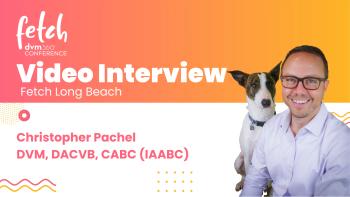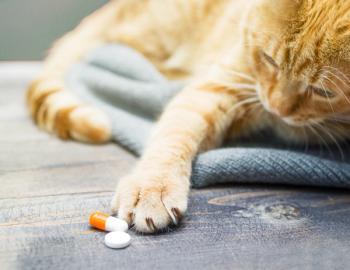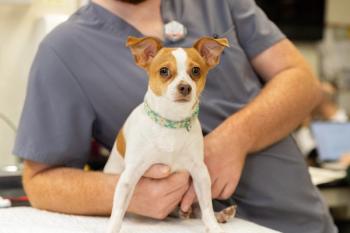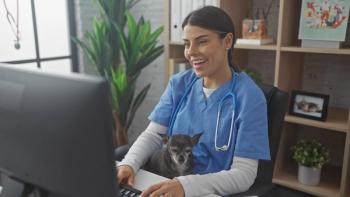
Humanimal Trust forms independent science committee
Consists of human and animal health professionals, as well as academics and researchers from around the globe to progress One Medicine
Humanimal Trust has formed a science committee that will look at grant applications and suggest projects to be funded in Humanimal Trustpriority areas, which support One Medicine. Through this approach, humans and animals benefit from sustainable and equal medical advances, but not at the expense of an animal’s life.1
In an interview with the chair of trustees at Humanimal Trust and interim chair of the science committee,2 Roberto La Ragione, BSc, MSc, PhD, FRSB, CBiol, FIBMS, CSci, AECVM, FRCPath, HonAssocRCVS, professor at the University of Surrey in Guildford, England, explained that education is critical to One Medicine and by discovering health similarities in animals and humans helps drive change. “We know that One Medicine has transformative potential across all areas of medicine where physiological and genetic similarities exist between humans and animals,” said La Ragione, in an organizational release.1
Funds provided by Humanimal Trust will first focus on smaller projects (eg, proof of concept, contributions to existing PhD studies, Masters projects and research studies under £20k—or about $24,000 USD) that are within the charity’s priority areas. The goal is to support partnership among veterinarians, doctors, researchers, nurses and allied professionals. With time, larger projects may also be considered for funding.1
“Research that the Trust has previously funded has the potential to help improve the lives of both humans and animals with similar conditions, and with their combined professional experience, expertise and passion for One Medicine, our new science committee will ensure that we are on the right path to developing further evidence that a collaborative, One Medicine approach can benefit all patients, regardless of their species,” La Ragione added. “On behalf of all Humanimal Trust trustees, staff, volunteers and supporters, I would like to welcome all new members of our science committee and I look forward to working with them.”
Members of Humanimal Trust’s science committee include1:
- Roberto La Ragione (Interim Chair), BSc, MSc, PhD, FRSB, CBiol, FIBMS, CSci, AECVM, FRCPath, HonAssocRCVS - University of Surrey, Head of the School of Biosciences and Professor of Veterinary Microbiology and Pathology in the School of Veterinary Medicine; Chair of the Royal College of Pathologists Veterinary Pathology SAC; Trustee of the Houghton Trust; member of the APHA Science Advisory Board; member of the FSA ACMSF AMR sub-committee.
- Anna Radford, MBBS, BSC, PGCERT (RES), FRCS (PAEDS), PHD - Consultant Paediatric Surgeon and Urologist at Hull University Teaching Hospitals NHS Trust; Consultant Paediatric Urologist at Leeds Teaching Hospitals NHS Trust; Honorary Senior Clinical Lecturer at Hull York Medical School.
- Helen Ballantyne, MSc - Clinical Nurse Specialist for Living Kidney Donation; Registered Veterinary Nurse.
- Margarida Simoes, RN, DVM, PhD – human nurse and veterinary doctor; European Centre for Disease Prevention and Control (ECDC) Fellow; Resident of the European College of Veterinary Public Health.
- Benjamin Capps, BSc, PhD, MA - Associate Professor in Clinical Ethics at Dalhousie University; Chair of the HumanGenome Organisation (HUGO) Committee on Ethics, Law and Society.
- Matthew Breen, PhD - Professor of Genomics; Oscar J. Fletcher Distinguished Professor of Comparative Oncology Genetics in the Department of Molecular Biomedical Sciences at the North Carolina State University College of Veterinary Medicine.
- James Yeates, PhD, MBA, FRCVS - trained veterinarian; CEO of the World Federation for Animals; member of the Scottish Government Animal Welfare Commission and DEFRA Animal Welfare Committee.
- Ali Mobasheri, PhD, MS - Professor of Musculoskeletal Biology at the University of Oulu, Finland; Chief Researcher and International Advisor at the State Research Institute Centre for Innovative Medicine in Vilnius, Lithuania; Visiting Professor at Sun Yat-sen University, China; Advisor to the World Health Organization Collaborating Center for Public Health Aspects of Musculoskeletal Health and Aging at Université de Liège, Belgium.
- Ashish Ranjan, PhD, BVSc – Endowed Professor in the College of Veterinary Medicine at Oklahoma State University, USA; Director of the Institute for Translational and Emerging Research in Advanced Comparative Therapy (INTERACT).
- Richard William Doughty, BSc, BVSc, MB, ChB (Hons), MSc – trained veterinarian and consultant pathologist at Akershus University Hospital, Norway.
“We feel extremely fortunate to have such a passionate and forward-thinking group of people from the worlds of both human and animal health on our science committee,” said Joe Bailey, CEO of Humanimal Trust.1 “Together, we will ensure that the research we fund, facilitate and share has reciprocity at its core, so that not only do practitioners and allied researchers benefit from medical advances, but also patients, regardless of their species.”
“By sharing knowledge gained through treating naturally occurring diseases in both human and animal patients to inform medical research and utilizing non-animal research technology to further veterinary as well as human medicine, we truly believe that the use of animals in research can be significantly reduced until one day, experimental animal use becomes obsolete,” she added.
References
- Humanimal Trust announces independent science committee. News release. Humanimal Trust. September 13, 2023. Accessed September 14, 2023. https://www.humanimaltrust.org.uk/news/humanimal-trust-announces-independent-science-committee
- Ellis D. One Medicine: how human and veterinary medicine can benefit each other. News Medical. October 26, 2022. Accessed September 14, 2023. https://www.news-medical.net/news/20221026/One-Medicine-how-human-and-veterinary-medicine-can-benefit-each-other.aspx
Newsletter
From exam room tips to practice management insights, get trusted veterinary news delivered straight to your inbox—subscribe to dvm360.





